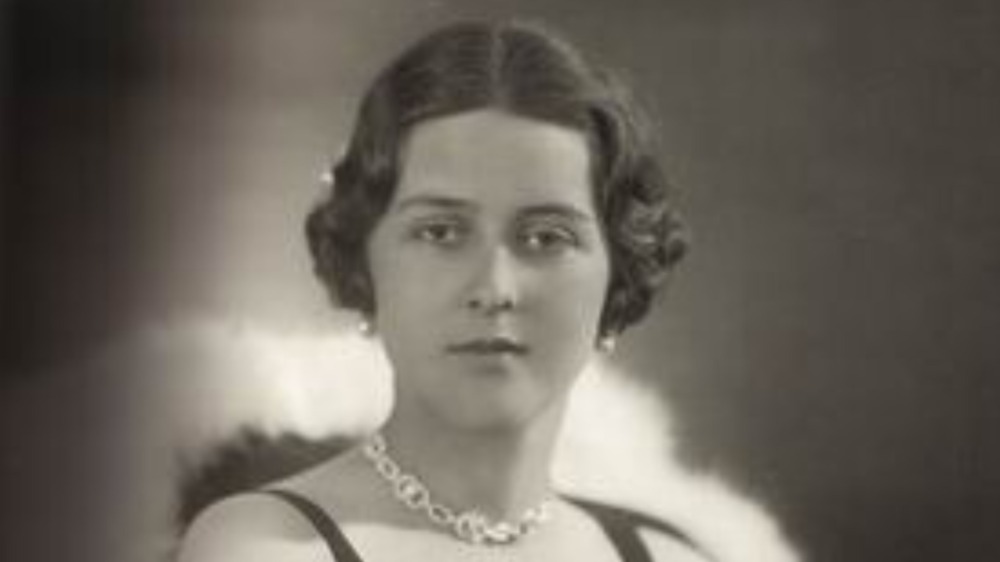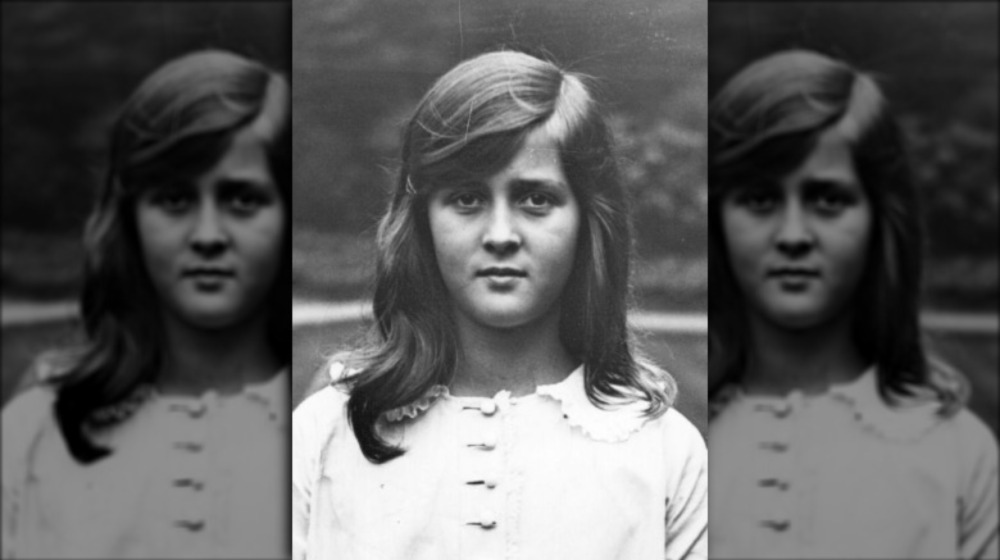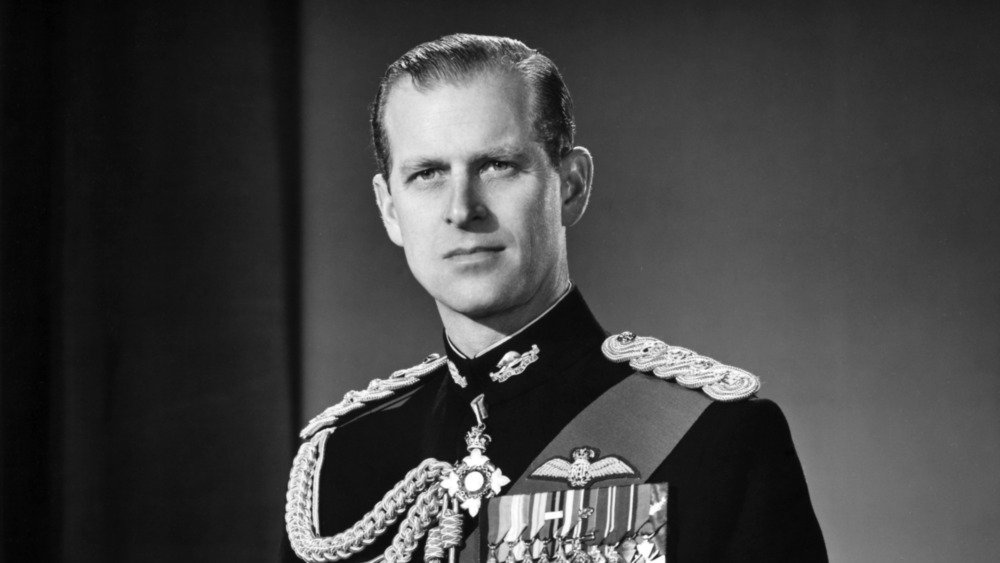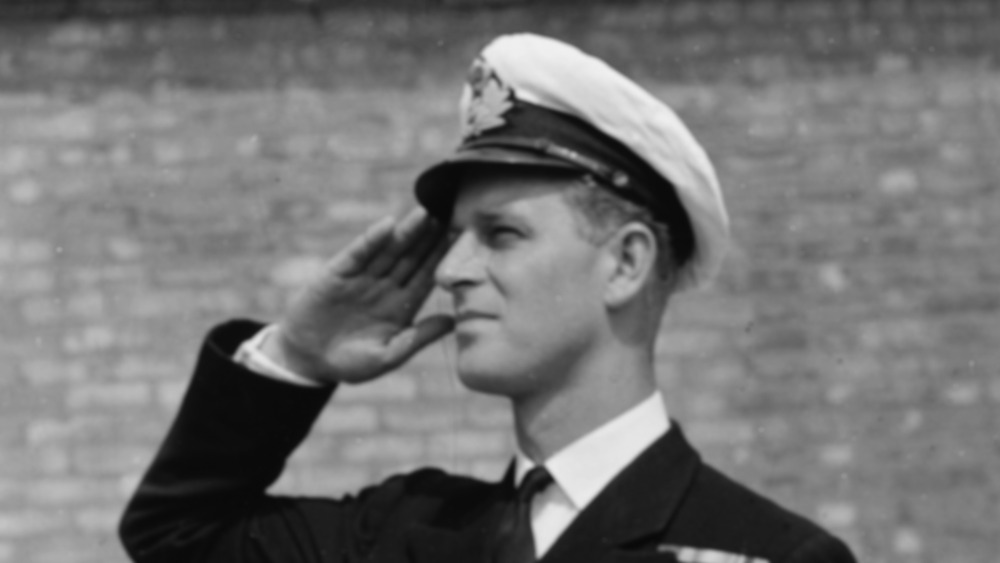The Tragic Death Of Prince Philip's Sister, Princess Cecilie
Prince Philip was no stranger to tragedy. As a prince of Greece and Denmark, a military coup in 1922, reports BBC, forced his family to flee to Italy. In the following years, Vogue notes, his mother was institutionalized for a mental breakdown, later diagnosed as schizophrenia, and his father abandoned the family to live with his mistress. But even those challenging times could not prepare him for the ultimate tragedy yet to come.
His sister, Princess Cecilie, was the third of Prince Philip's siblings, born in 1911 on the Greek royal family's estate in Tatoi, Greece. She married Georg Donatus, Hereditary Grand Duke of Hesse in 1931, and they had three children (via Salon Privé Magazine).
The princess was eight months pregnant with her fourth child when she, her husband, his mother, their nanny, and two of their three children boarded a plane in Darmstadt, Germany, on November 16, 1937, bound for London to attend the wedding of Georg's brother, Prince Ludwig, to Margaret Campbell-Geddes.
Sadly, the family never arrived. Unexpectedly, the pilot attempted to make an unplanned landing in Brussels, but it was covered in dense fog. When he instead tried to land at the similarly foggy Ostende airport, writes Salon Privé Magazine, he crashed into a factory chimney that had been obscured by poor visibility. The plane broke apart and caught on fire when it hit the ground. There were no survivors. Princess Cecilie was only 26 years old at the time of her death (via The Sun).
The unexpected arrival of the baby had disastrous consequences
In the wreckage of the plane they found the body of a newly born baby, Salon Privé Magazine notes. Because of that, writes The Sun, Belgian investigators believed that Princess Cecilie gave birth to the baby during the flight, leading to speculation that the pilot was attempting to make an emergency landing after the Princess went into labor unexpectedly.
According to Unofficial Royalty, due to the tragedy, the large wedding plans for November 20th were scrapped and the next day Prince Ludwig and Margaret were married in a private ceremony. The couple then collected the bodies of the princess and her family in Belgium and returned to Darmstadt. Prince Philip, along with the rest of his family, attended the funeral.
The Princess's young daughter, and Prince Philip's niece, Johanna, was just over a year old at the time, notes Unofficial Royalty. She was thought too young for the trip, so she was left at home. She was the only surviving family member of her immediate family and was later adopted by her uncle, Prince Ludwig. However, she sadly contracted meningitis and died in June 1939, three months shy of her 3rd birthday.
Prince Philip on 'getting on with it'
Most royal watchers are familiar with the 'stiff upper lip' of British aristocracy in general and, in particular, that of both Queen Elizabeth II and Prince Philip. Though the queen was born into her life of propriety and duty to the crown above all else, Philip was nevertheless nearly as composed as Her Royal Highness. Though often given to a degree of social, er, frankness that sometimes proved embarrassing to the crown, the public rarely knew how Prince Philip felt about anything. This is likely part-intentional (he is a royal, after all) but might also be attributed to those early tragedies he suffered.
Though only a toddler when his family was forced to flee Greece, Philip must have grown up hearing the stories behind the tragedy and likely learned early on the value of staying under the radar. Given how frequently he was shuttled off to various countries and schools, he'd have had no choice but to adapt, even given life-altering tragedies like the death of Cecilie. As Vogue notes, one especially heart-rending summation of his childhood misfortunes that Philip once gave his biographer was, "I just had to get on with it. You do. One does."
Did The Crown skip over Cecilie's true story?
As Prince Harry recently explained to James Corden (per BBC), he's more comfortable with The Crown's approach to royal life than that of the notoriously vicious British tabs, saying of the show, "They don't pretend to be news. It's fictional, but it's loosely based on the truth."
Princess Cecilie's death is a perfect example of the way the show manipulates the story and elides some of the real-life details in favor of more dramatic storylines. Vogue notes that, while the show got many key features of Cecilie's story right (including her pregnancy, in-flight birth, and death in the plane crash), it strayed from the truth when it came to Philip's role in his sister's death. Namely, that he actually had no role, contrary to the event's depiction on The Crown when Philip's decision to not visit Cecilie meant that she boarded the flight that led to her death. In reality, a royal biographer is quoted in the Vogue piece as reiterating that Cecilie was always going to attend the wedding and that "Prince Philip had nothing to do with the accident at all."
In the end, even circumstances as tragic as Cecilie's death and Philip's lonesome childhood still receive a bit of Hollywood embellishment. Still, as Philip might say, you just have to get on with it, as one does.



